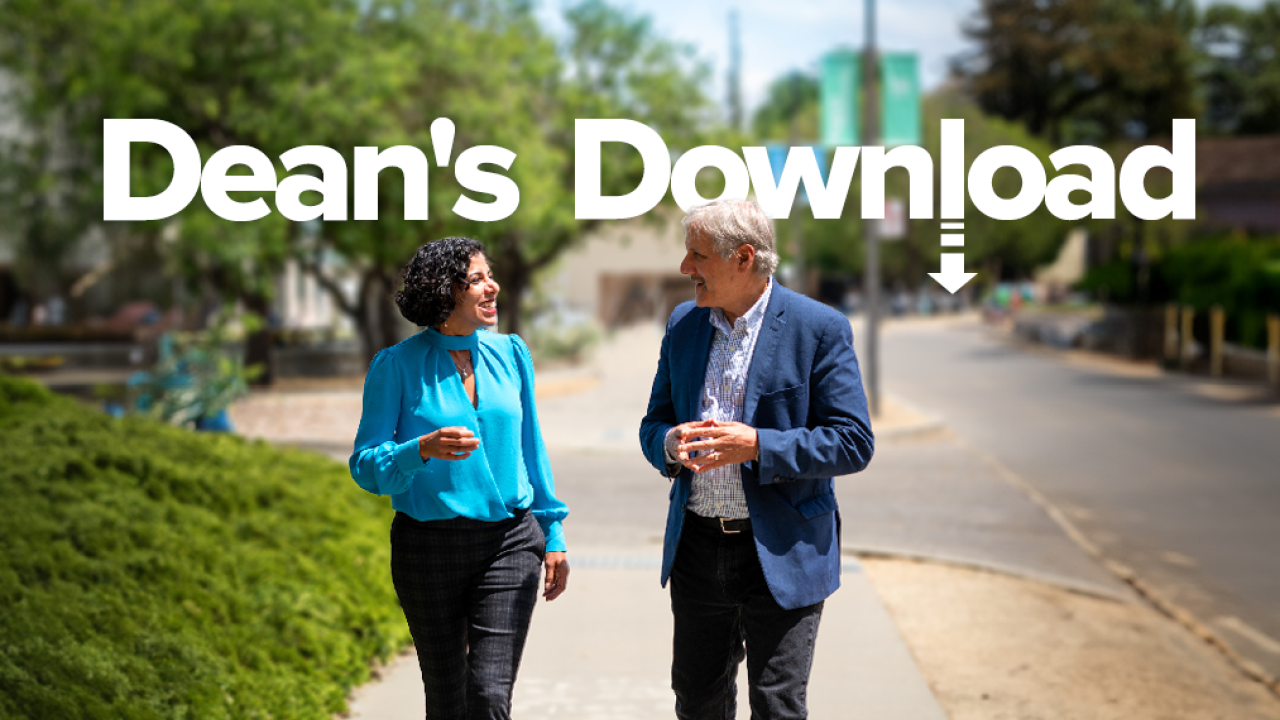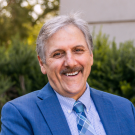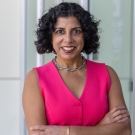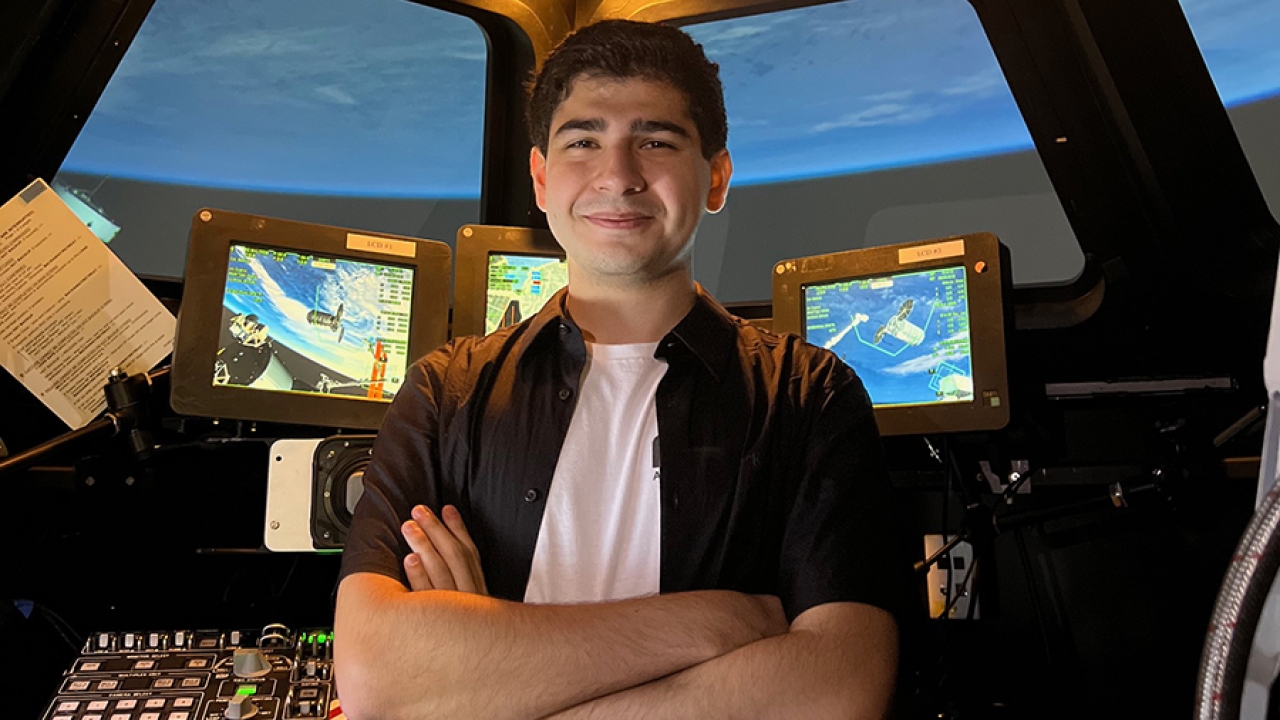
Dean's Download: Engineering Progress Spring 2024
I never had any hope of writing an opening remark that did the collaborative, interdisciplinary theme at the heart of this issue, and, truly, the college’s research enterprise at large, any justice. Because I would have, by design, been writing by myself, separated from the community of outstanding faculty members and students who call the College of Engineering home.
That’s why I have opted in favor of replacing my dean’s letter with a conversation, a practice I hope to continue moving forward. For this inaugural edition, I could think of no better person than Raissa D’Souza, our associate dean of research, who has been a champion of our Next Level strategic research vision. I hope you enjoy our discussion, and the amazing stories of discovery on the pages that follow.
Richard L. Corsi
Dean of Engineering
Richard Corsi: To start, let’s talk about the college's vision for Next Level engineering research. In my view, that phrase represents how we will leverage our strengths and invest in areas where we can make a real impact in the world. I'd love to hear your thoughts as our associate dean for research.
Raissa D’Souza: First, we're building on the deep expertise of the faculty, and second, we're aiming to solve big social problems through engineering solutions. The world is at a tipping point, and it's time to turn the ship on things like climate change. The turn of the ship is going to happen through engineering.
RC: Last year alone, we hired 18 new assistant professors who are all doing groundbreaking work, from proving that Amazon's Alexa was spying on customers to a new research program investigating how the human body performs in space. How do you think our early career faculty influence our overall research enterprise?
RD: In short, our early career faculty are creating the future not just for the college but for society at large. They're doing fantastic work on a broad spectrum of pressing issues, including next-generation prosthetic limbs, quantum information technologies and smart health technologies like e-tattoos — innovative, bold research that is pushing the frontier.
RC: Speaking about pushing the frontier, I am excited about Aggie Square and its potential to maximize our research innovations and elevate our efforts to advance human health. What are you looking forward to with Aggie Square, and are there other notable facilities in which our engineers are advancing next level research?
RD: The development of Aggie Square will take the partnership between engineering and medicine to the next level. There's so much opportunity for smart health to reach underserved communities, and those solutions need the partnership between the medical school researchers at UC Davis Health and our engineering researchers. There will also be a lot of exciting developments with biomedical engineering, like the maker's space that's coming online, which will greatly enhance our interactions across the causeway. The Center for Nano-MicroManufacturing, or CNM2, has been a research cornerstone of the college for quite a long time and with the CHIPS and Science Act — and the need for workforce development in the semiconductor industry — there's tremendous opportunity for discovery there. And, of course, the brand-new Coffee Center. This center will provide many opportunities to think about the impact of climate sustainability and sustainable food systems alongside the health and longevity of the people who are growing and picking these crops.
RC: You once said the grand challenges of the modern world “are problems that require inherently interdisciplinary thinking, and which have engineering at the core of the solutions.” Can you help unpack that a little bit? How is the College of Engineering best positioned to tackle the world's most pressing problems?
RD: One of the reasons that our college is well positioned to do that is the comprehensive nature of UC Davis overall. These next-generation advances need partnerships between the social sciences and humanities, the legal scholars and the medical school and the business school — all these experts partnering with engineers to make the solutions that will drive things forward. I think AI is a space where we must consider various perspectives, demands and competing objectives. It's a place like UC Davis that can rise to a challenge like this because we can have conversations with world experts in all of these different domains to engineer the right solutions that human beings want.
RC: I have one last question: You've been the college's associate dean of research for two years now, and I'm curious to know, what are you most proud of?
RD: Our administration has shined more of a spotlight on the amazing things that our engineers are doing. The other thing that is very satisfying to me is the opportunity to mentor so many of our young faculty with their CAREER Awards from the National Science Foundation and with navigating the landscape of scientific publishing, especially in high-level journals, and writing grant proposals. It’s been incredibly rewarding to see their successes.
RC: We're on a fantastic trajectory, and a big part of it is because of your efforts, Raissa. Thank you.
Learn more about the college's Next Level Research Vision






